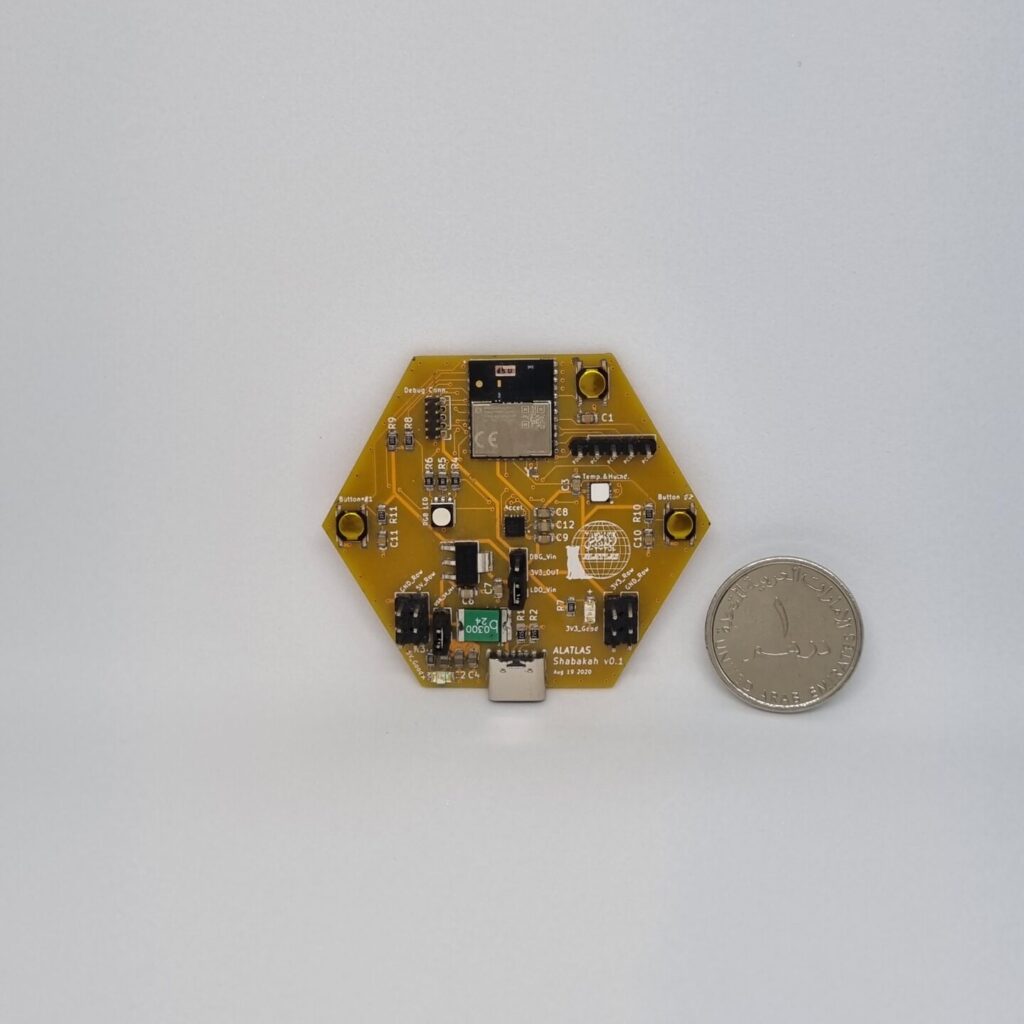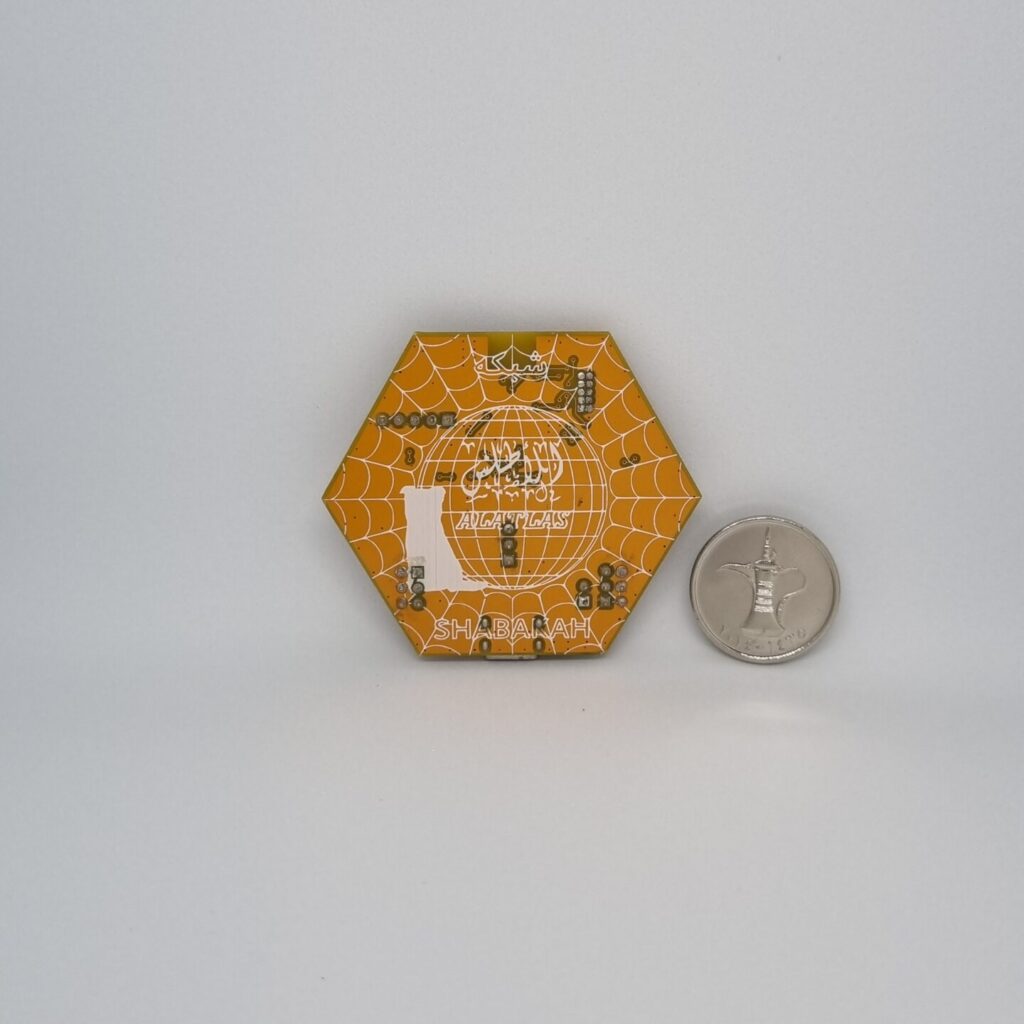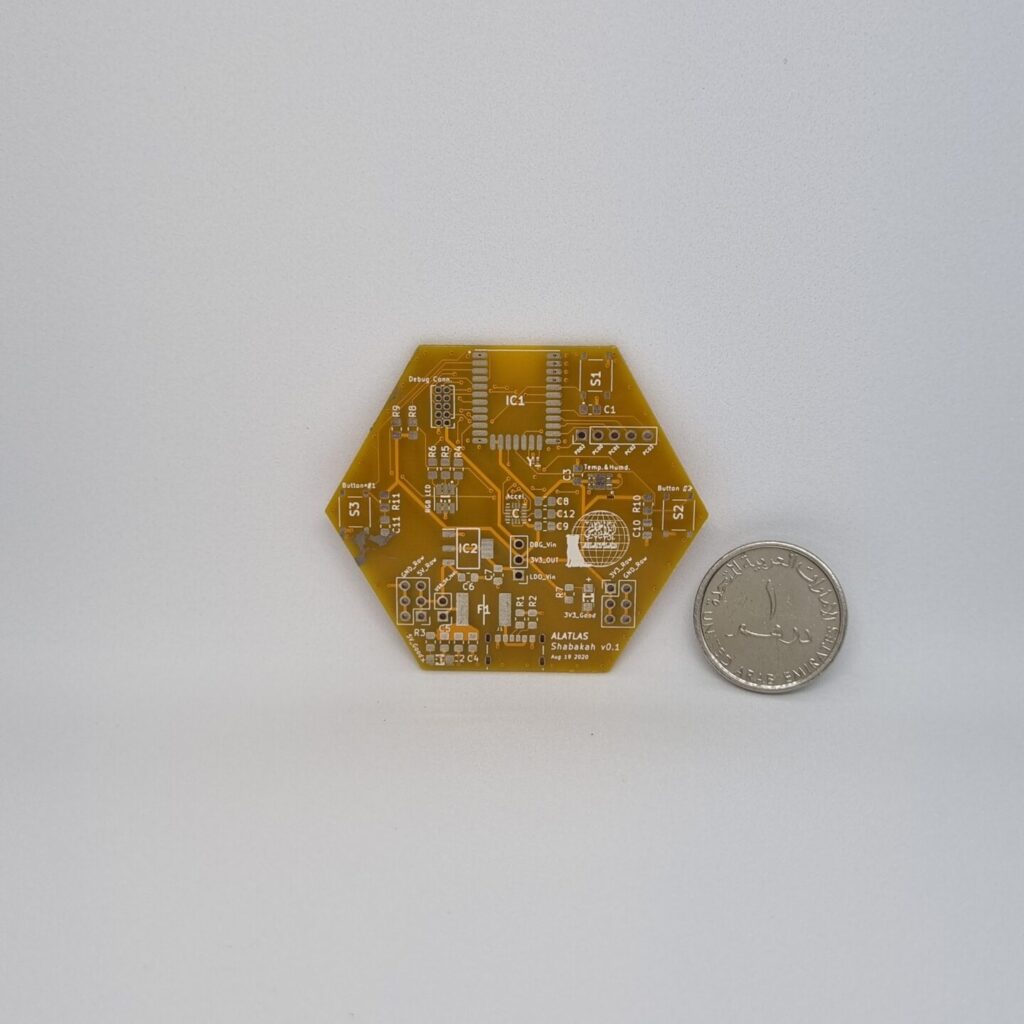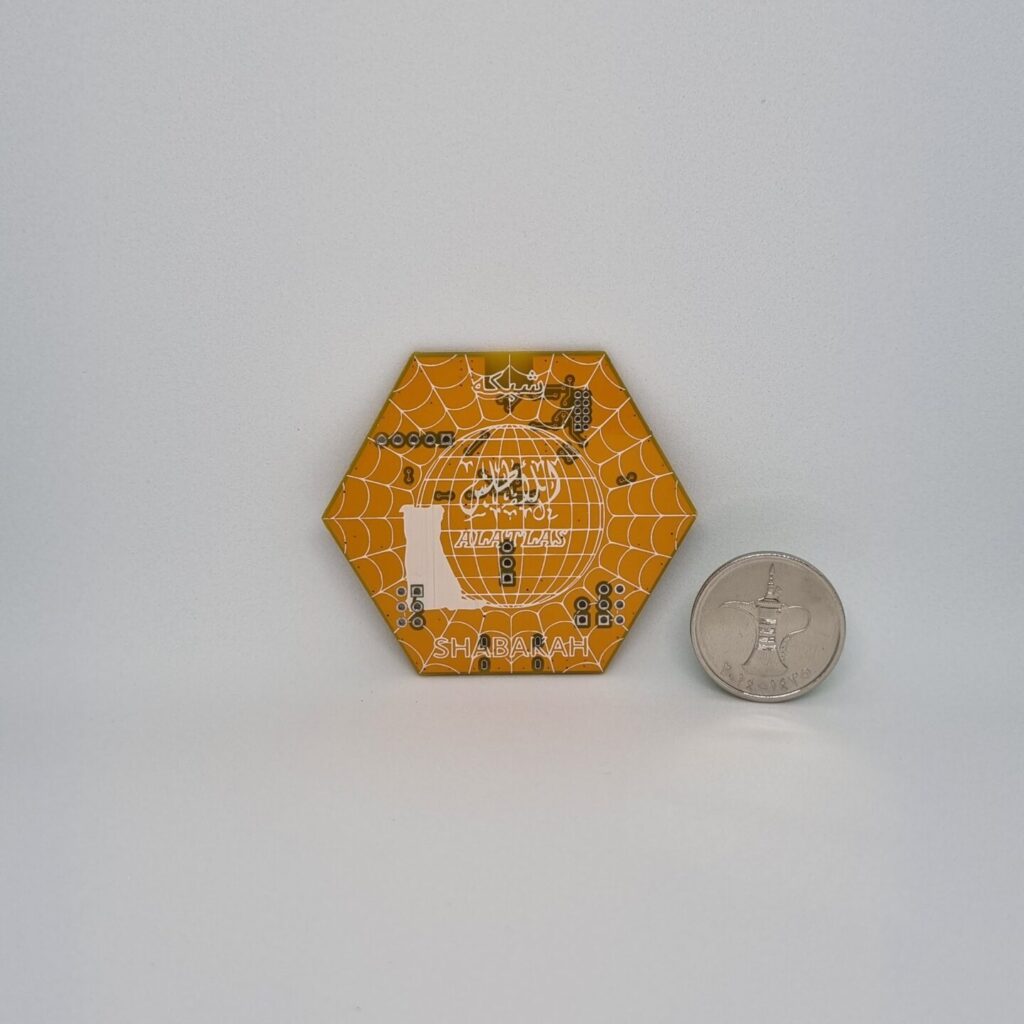Shabakah 🕸️ شبكة
v0.1
/* Shabakah was the first ever development board created by Remal IoT. We initially called ourselves “AlAtlas Technologies” and had a much different logo.
This was at a time when it was just a side hobby of Khalid’s. This page is mainly for documentation purposes, so enjoy and look forward to more capable and easy-to-use iterations of Shabakah! */
“Shabakah” translates to “Web” in Arabic. Shabakah is built around the EFR32MG21 Wireless Gecko Series 2 SoC by Silicon Labs. The main reason for selecting this SoC is the Bluetooth 5.1 support for playing around with Mesh and LE applications. However, the Zigbee and Thread protocols are also supported.




Shabakah was created to utilize the latest Bluetooth technology in various projects, mainly mesh networking capabilities.
We added a few on-board sensors, like an accelerometer, temperature and humidity sensors, and two free buttons, to quickly get started with testing applications. Also, a trusty RGB LED to quickly determine system status. Unused pins were broken out to connect external components if needed.
Unlike Nabd🧡(which is an Arduino supported board), writing code for this board requires experience in bare-metal C and doing some reading. Silicon Labs provides a great IDE and documentation for their MCUs.
Check out the video for a quick introduction to Shabakah v0.1 and all its features!
This video shows Bluetooth communication between five Shabakah boards. One server and four clients. Accelerometer data from the server is broadcast and sent from the server to the four clients, which in turn change the color of the LED based on the data received.
▶ Powered by Silicon Labs MGM210PA32JIA (3.3V / 32-bit /38.4 MHz)
▶ USB-C for power
▶ Flashing and Debugging via Simplicity Mini Connector
▶ Supports Bluetooth 5.1, Zigbee and Thread
▶ Can be extremely low power – down to 6.45 uA (and that’s not even the lowest energy mode)
▶ On-board Accelerometer (MMA8452QR1)
▶ On-board Temperature and Humidity sensor (Si7021)
▶ RGB LED
▶ Two free buttons
▶ Five free GPIO pins
▶ 5V and 3.3V power rails
▶ Power can be isolated via jumpers